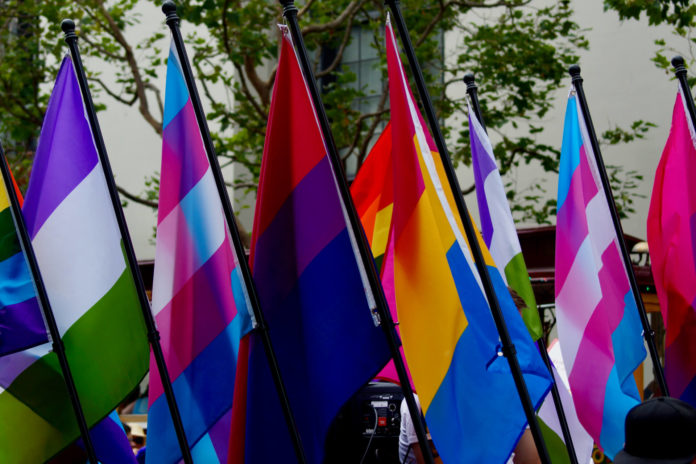
Growing up in Georgia’s public schools, I met a lot of students with wildly different experiences than me and my family. The girl I sat with on the bus to school had immigrated from Nigeria when she was three. My neighbor was Jewish, my swim teammate was blind, and my locker neighbor in tenth grade wore a different colored hijab each day of the week.
I also met many students who suffered – especially when funds ran low and a deadly pandemic hit hard. A classmate lost his mother to covid. A friend developed long covid and had to drop out of her college sports team. Another friend watched her cousin get tased and tackled by a cop in the school halls for vaping in the bathroom. Three local students committed suicide in one year, and a girl I’d spent math class with was kicked out of her home for dating a girl.
My community’s experiences aren’t unique. Roughly two-thirds of Georgia students are students of color. Half a million children in our state live in poverty. Nine out of every 10 students attend a public school. When I looked around and saw our youngest generation slipping through the cracks, I knew I wasn’t alone.
This past legislative session, I skipped classes with my friends to raise these concerns. Georgia’s children in crisis, from Dalton to Brunswick, needed our elected officials to step up to the task. Legislators have not fully funded our schools a single year I’ve been alive, and the people I care about – students of all walks of life – are feeling the consequences. At first, legislators would cancel public comments once students entered the room – so, we started coming almost daily, just in case we got to speak. Every sixty-second pinch of time at that microphone was valuable.
Students from Savannah, Cumming, Morrow, and McDonough spoke. We spoke about what it was like to play rugby with transgender teammates, or to go to a school named after a Confederate general. But we also spoke about puddles of sewage on the floors of our school hallways, rats falling from collapsing ceilings, and teachers who couldn’t afford rent.
Ultimately, our elected officials ignored those efforts. They rejected proposals to fund children in poverty. They rejected proposals to make up for the billions in funding cuts to our schools in the past decade. Instead, they spent the final hours of the legislative session breaking their own rules to push forward discriminatory bans on transgender athletes, some of the most vulnerable among us. Politicians chose to attach trans-exclusionary language to any bill they could until past midnight on the last voting day.
I spent that day calling reporters, professional athletes, lawyers, families, and lawmakers. I wore out the soles of my shoes running between capitol offices with other students, talking to any lawmaker who would listen.
“Trans athletes are my friends,” I said to one of them, “they are my classmates, they are children, and they live in your district! This bill will exclude already vulnerable kids just trying to play soccer with their friends.”
Most of them hid in their offices. Some of them listened but still voted to clear a path for a ban anyway. In a political landscape where wealthy donors were thirsty for culture war legislation, this bill was nothing more than a box to check for Republican lawmakers. For years, legislators had let this hateful policy stall – now that donors were angry, targeting transgender youth became a sudden priority. The bill, an amendment attached to House Bill 1084, passed and was signed into law this spring.
Now, we sit surrounded by states that criminalize the very existence of transgender children and their families. In our own schools, the Georgia High School Sports Association has recently banned transgender athletes and coined children as villains for political convenience. My friends, community, and students of all backgrounds and athletic abilities, know this is wrong. Transgender youth are our loved ones and friends, and they pose no threat to their cisgender teammates.
Thinking about the spite that motivated this recent attack, I recall a story from this past year. A friend, a father of a young, transgender student, met me in the state Capitol one day to sit in on an education hearing. He brought his son with him, and a legislator who would ultimately sponsor legislation targeting transgender students stopped on his way into the room.
“What a handsome young son you have,” he said, smiling down at the child before walking to the podium ahead. At the time, it was a quirky little interaction – the legislator had no idea he was affirming the identity of a child his legislation so deeply harmed.
Just a few weeks later, I remember standing outside the Gold Dome surrounded by flashing police lights and legislators meandering their way out of the final hours of the legislative session. I remember hugging the parents of transgender children in our schools who tearfully asked me why their children weren’t worthy in the eyes of politicians. In that moment, I was deeply furious.
I truly believe Georgia’s families deserve better than hateful political wars waged over dilapidated school buildings. I truly believe all our children are worthy of leaders who fund their futures instead of cutting school budgets. I truly believe transgender young people are so loved by their peers, and that love should be reflected in the rights, safety, and inclusion they are afforded in Georgia’s schools.
I believe when voters go to the polls this November, they won’t be thinking about conspiracies about gay teachers and Black history. Instead, they will wonder why is it that when students went to the Capitol and asked for truth, compassion, and schools that serve us all, politicians cut the mic and left us behind. Our lawmakers chose to mandate discrimination against some of the most vulnerable among us – at a time when Georgia families need courageous leaders who don’t scapegoat children when they’re nervous about their re-elections.
Every week, I get to talk to parents, faith leaders, students, and teachers who care about Georgia’s future. When politicians let us down, we lean on each other. We know our families deserve a better world, and we know we deserve lawmakers who will join us in that fight.







